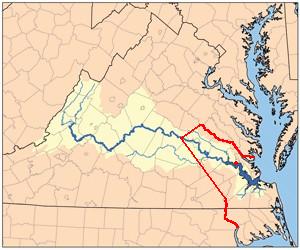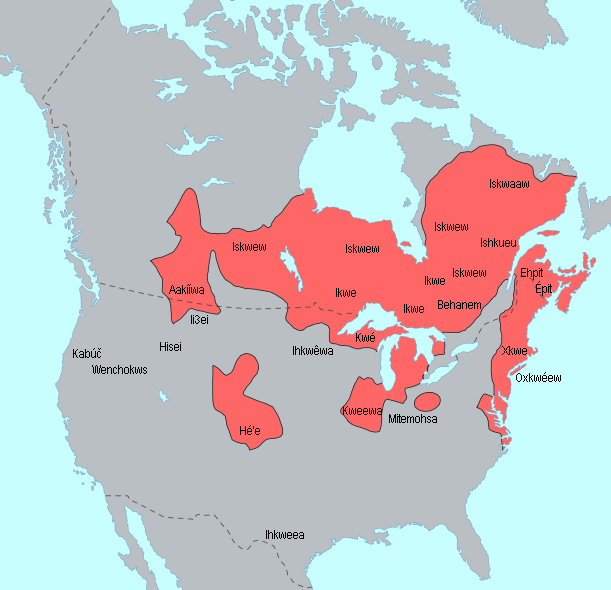|
Werowance
Weroance is an Algonquian word meaning leader or commander among the Powhatan confederacy of the Virginia coast and Chesapeake Bay region. Weroances were under a paramount chief called Powhatan. The Powhatan Confederacy, encountered by the colonists of Jamestown and adjacent area of the Virginia Colony beginning in 1607, spoke an Algonquian language. Each tribe of the Powhatan Confederacy was led by its own weroance. Most foreign writers who have come across a weroance only did so on a special occasion. This is the case because a foreigner's presence was special. John Smith noted that there are few differences between weroances and their subjects. In older texts, especially from the time of the early Jamestown settlers, spelling was not standardized, so the following spellings are used in different texts: * weeroance * weroance * werowance * werowans * wyroance * wyrounce * wyrounnces A weroansqua is a female ruler. Spellings of this word also vary. Powers of a weroance Paramo ... [...More Info...] [...Related Items...] OR: [Wikipedia] [Google] [Baidu] |
Wahunsenacawh
Powhatan ( c. 1547 – c. 1618), whose proper name was Wahunsenacawh (alternately spelled Wahunsenacah, Wahunsunacock or Wahunsonacock), was the leader of the Powhatan, an alliance of Algonquian-speaking Native Americans living in Tsenacommacah, in the Tidewater region of Virginia at the time when English settlers landed at Jamestown in 1607. Powhatan, alternately called "King" or "Chief" Powhatan by English settlers, led the main political and military power facing the early colonists, and was probably the older brother of Opechancanough, who led attacks against the settlers in 1622 and 1644. He was the father of Matoaka (Pocahontas). Name In 1607, the English colonists were introduced to Wahunsenacawh as Powhatan and understood this latter name to come from Powhatan's hometown near the falls of the James River near present-day Richmond, Virginia.Huber, Margaret Williamson (January 12, 2011)"Powhatan (d. 1618)" [...More Info...] [...Related Items...] OR: [Wikipedia] [Google] [Baidu] |
Powhatan Confederacy
The Powhatan people (; also spelled Powatan) may refer to any of the indigenous Algonquian people that are traditionally from eastern Virginia. All of the Powhatan groups descend from the Powhatan Confederacy. In some instances, The Powhatan may refer to one of the leaders of the people. This is most commonly the case in historical records from English colonial accounts.Waugaman, Sandra F. and Danielle Moretti-Langholtz, Ph.D. ''We're Still Here: Contemporary Virginia Indians Tell Their Stories''. Richmond: Palari Publishing, 2006 (revised edition). The Powhatans have also been known as Virginia Algonquians, as the Powhatan language is an eastern- Algonquian language, also known as Virginia Algonquian. It is estimated that there were about 14,000–21,000 Powhatan people in eastern Virginia, when English colonists established Jamestown in 1607. In the late 16th and early 17th centuries, a ''mamanatowick'' (paramount chief) named Wahunsenacawh created an organization by affi ... [...More Info...] [...Related Items...] OR: [Wikipedia] [Google] [Baidu] |
Chief Powhatan
Powhatan ( c. 1547 – c. 1618), whose proper name was Wahunsenacawh (alternately spelled Wahunsenacah, Wahunsunacock or Wahunsonacock), was the leader of the Powhatan, an alliance of Algonquian-speaking Native Americans living in Tsenacommacah, in the Tidewater region of Virginia at the time when English settlers landed at Jamestown in 1607. Powhatan, alternately called "King" or "Chief" Powhatan by English settlers, led the main political and military power facing the early colonists, and was probably the older brother of Opechancanough, who led attacks against the settlers in 1622 and 1644. He was the father of Matoaka (Pocahontas). Name In 1607, the English colonists were introduced to Wahunsenacawh as Powhatan and understood this latter name to come from Powhatan's hometown near the falls of the James River near present-day Richmond, Virginia.Huber, Margaret Williamson (January 12, 2011)"Powhatan (d. 1618)" [...More Info...] [...Related Items...] OR: [Wikipedia] [Google] [Baidu] |
Powhatan
The Powhatan people (; also spelled Powatan) may refer to any of the indigenous Algonquian people that are traditionally from eastern Virginia. All of the Powhatan groups descend from the Powhatan Confederacy. In some instances, The Powhatan may refer to one of the leaders of the people. This is most commonly the case in historical records from English colonial accounts.Waugaman, Sandra F. and Danielle Moretti-Langholtz, Ph.D. ''We're Still Here: Contemporary Virginia Indians Tell Their Stories''. Richmond: Palari Publishing, 2006 (revised edition). The Powhatans have also been known as Virginia Algonquians, as the Powhatan language is an eastern- Algonquian language, also known as Virginia Algonquian. It is estimated that there were about 14,000–21,000 Powhatan people in eastern Virginia, when English colonists established Jamestown in 1607. In the late 16th and early 17th centuries, a ''mamanatowick'' (paramount chief) named Wahunsenacawh created an organization by affi ... [...More Info...] [...Related Items...] OR: [Wikipedia] [Google] [Baidu] |
Algonquian Languages
The Algonquian languages ( or ; also Algonkian) are a subfamily of Indigenous languages of the Americas, indigenous American languages that include most languages in the Algic languages, Algic language family. The name of the Algonquian language family is distinguished from the orthographically similar Algonquin language, Algonquin dialect of the Indigenous Ojibwe language (Chippewa), which is a senior member of the Algonquian language family. The term ''Algonquin'' has been suggested to derive from the Maliseet word (), "they are our relatives/allies". A number of Algonquian languages are considered extinct languages by the modern linguistic definition. Algonquian peoples, Speakers of Algonquian languages stretch from the east coast of North America to the Rocky Mountains. The proto-language from which all of the languages of the family descend, Proto-Algonquian language, Proto-Algonquian, was spoken around 2,500 to 3,000 years ago. There is no scholarly consensus about wh ... [...More Info...] [...Related Items...] OR: [Wikipedia] [Google] [Baidu] |
Royal Titles
Traditional rank amongst European royalty, peers, and nobility is rooted in Late Antiquity and the Middle Ages. Although they vary over time and among geographic regions (for example, one region's prince might be equal to another's grand duke), the following is a reasonably comprehensive list that provides information on both general ranks and specific differences. Distinction should be made between reigning (or formerly reigning) families and the nobility – the latter being a social class subject to and created by the former. Ranks and titles Sovereign * The word ''monarch'' is derived from the Greek μονάρχης, ''monárkhēs'', "sole ruler" (from μόνος, ''mónos'', "single" or "sole", and , ''árkhōn'', archon, "leader", "ruler", "chief", the word being the present participle of the verb ἄρχειν, ''árkhein'', "to rule", "to lead", this from the noun ὰρχή, ''arkhē'', "beginning", "authority", "principle") through the Latinized form ''monarcha''. ... [...More Info...] [...Related Items...] OR: [Wikipedia] [Google] [Baidu] |
Joseph Barnes (printer) (born 1951), American player of Canadian football
{{hndis, Barnes, Joseph ...
Joseph Barnes may refer to: * Joseph Barnes (American physician) (1817–1883), Surgeon General of the United States Army * Joseph Barnes (Irish doctor) (1914–2017), Irish physician and medical missionary * Joseph Fels Barnes (1907–1970), American journalist * Joseph Barnes (footballer) (1896–1953), English footballer * Joseph Barnes (merchant) (died 1829), merchant and slave-owner in Jamaica * Joe Barnes Joe Barnes (born December 18, 1951) was an all-star quarterback in the Canadian Football League. College career Barnes was a graduate of Texas Tech University, playing from 1971 to 1973, and was inducted into the Texas Tech Athletic Hall of Hon ... [...More Info...] [...Related Items...] OR: [Wikipedia] [Google] [Baidu] |
John Smith Of Jamestown
John Smith (baptized 6 January 1580 – 21 June 1631) was an English soldier, explorer, colonial governor, Admiral of New England, and author. He played an important role in the establishment of the colony at Jamestown, Virginia, the first permanent English colonial empire, English settlement in America, in the early 17th century. He was a leader of the Virginia Colony between September 1608 and August 1609, and he led an exploration along the rivers of Virginia and the Chesapeake Bay, during which he became the first English explorer to map the Chesapeake Bay area. Later, he explored and mapped the coast of New England. He was knighted for his services to Sigismund Báthory, Prince of Transylvania, and his friend Mózes Székely. Jamestown was established on May 14, 1607. Smith trained the first settlers to work at farming and fishing, thus saving the colony from early devastation. He publicly stated, "He who does not work, neither shall he eat, He that will not work, shall n ... [...More Info...] [...Related Items...] OR: [Wikipedia] [Google] [Baidu] |
Matrilineal
Matrilineality is the tracing of kinship through the female line. It may also correlate with a social system in which each person is identified with their matriline – their mother's Lineage (anthropology), lineage – and which can involve the inheritance of property and/or titles. A matriline is a line of descent from a female ancestor to a Kinship, descendant (of either sex) in which the individuals in all intervening generations are mothersin other words, a "mother line". In a matrilineal Kinship and descent, descent system, an individual is considered to belong to the same descent group as their mother. This ancient matrilineal descent pattern is in contrast to the currently more popular pattern of patrilineal descent from which a family name is usually derived. The ''matriline'' of historical nobility was also called their enatic or uterine ancestry, corresponding to the patrilineal or "agnatic" ancestry. Early human kinship In the late 19th century, almost all ... [...More Info...] [...Related Items...] OR: [Wikipedia] [Google] [Baidu] |
Pamunkey
The Pamunkey Indian Tribe is one of 11 Virginia Indian tribal governments recognized by the Commonwealth of Virginia, and the state's first federally recognized tribe, receiving its status in January 2016. Six other Virginia tribal governments, the Chickahominy, the Eastern Chickahominy, the Upper Mattaponi, the Rappahannock, the Monacan, and the Nansemond, were similarly recognized through the passage of the Thomasina E. Jordan Indian Tribes of Virginia Federal Recognition Act of 2017 on January 12, 2018. The historical people were part of the Powhatan paramountcy, made up of Algonquian-speaking nations. The Powhatan paramount chiefdom was made up of over 30 nations, estimated to total about 10,000–15,000 people at the time the English arrived in 1607.Rountree, Helen C. and E. Randolph Turner III. ''Before and After Jamestown: Virginia's Powhatans and Their Predecessors''. Gainesville: University Press of Florida, 2002. The Pamunkey nation made up about one-tenth to one- ... [...More Info...] [...Related Items...] OR: [Wikipedia] [Google] [Baidu] |





